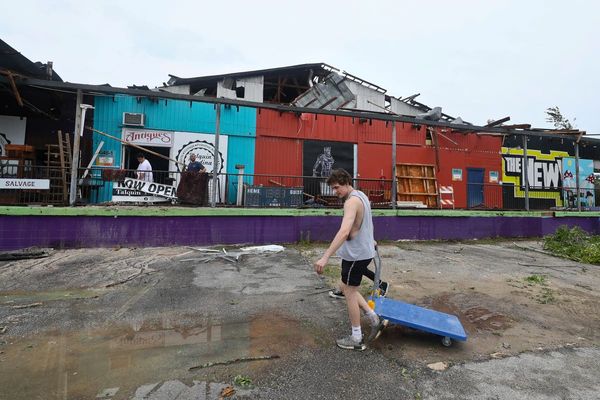
This documentary opens with Rhys Bowler’s tattoo artist asking the question every disabled person dreads: “How do you have sex?” Bowler – who has Duchenne muscular dystrophy (DMD), a life-limiting muscle-wasting condition that means he uses assisted ventilation and an electric wheelchair – takes the question in better spirit than most of us, gamely explaining that “everything works” but he is “lazy and just lays there”.
It is clearly a scripted reality device to get the key information across to the viewer quickly, but it speaks to the dilemma at the heart of this often moving documentary: the sex lives of disabled people is a topic full of prejudice and taboos that need busting. That said, ultimately, it is no one else’s business; the idea that it might be is surely half the problem.
We follow Bowler, 34, in his quest to find a loving partner while educating the world that disabled people like him want – and can have – sexual relationships. We see him in front of audiences working as a sex and disability educator, embarking on a long-distance relationship, and having conversations with his devoted, straight-talking mum – who is, in many ways, the star of the show. When she investigates the sex worker adverts Bowler is browsing on his laptop, her reaction could be a deleted scene from the Royle Family or Phoenix Nights. “Bi-curious?!” she exclaims. “Oh, they want to try. Try before you buy, like.”
Discussions of Bowler’s experiences with sex workers – his mum paid for him to lose his virginity as a Christmas present, even going out to buy him condoms – make up a large portion of the programme. It is a questionable focus. It hardly represents the vast majority of disabled people’s lives, nor does it do much to challenge the idea that disabled people aren’t desirable. To her credit, Bowler’s mum shows concern that paying for sex is “exploitative” of some women, but issues of exploitation are largely glossed over, other than a harrowing story in which Bowler recounts being financially and emotionally abused by a sex worker. Bowler is emphatic that sex workers should be available on the NHS for “people like me” and there are many interesting, complex dilemmas at play here worthy of discussion. Does society have a duty to help a person fulfil their sexual desires? What form might that take, ethically? If you and your partner are unable to have sex without physical support, what do you do? If disabled men’s sexual desires are seen as needs, are disabled women’s considered the same? None of these questions have easy answers, but this documentary would have been strengthened if it had at least asked them.
There are some odd directorial choices throughout. In one scene, we see Bowler helped by a personal assistant to change his clothing and put on deodorant. I can only applaud Bowler for his courage in being open, but I wonder what purpose such moments are supposed to serve. Would we see a non-disabled person undress ahead of their date? This feeling is only encouraged by lingering shots of Bowler’s hoist, ventilator and wheelchair. There is a fine line between authentic and fetishistic. In contrast, there is little focus on the crucial societal factors that disable Bowler. At one point, we see him drink from a mug with a metre-long straw because he doesn’t have the 24/7 care support he needs. These details are left regretfully unexplored.
The film is on better ground when Bowler speaks to other disabled people. We see him prepare a speech for a disability organisation in which he gives practical tips on how to enjoy sex if you are physically disabled. Most touchingly, we watch Bowler meet a woman he has been chatting to online. Samantha, from north Wales, who has a similar disability to Bowler, can clearly connect to him on a level few others can, but it is when the couple are shown to be like any other young daters that the fledgling romance feels most real. “You’re shit at it,” says Samantha about his lax communication skills.
Ironically, the most affecting relationships in the programme aren’t romantic but familial. Bowler’s brother, Geraint, who was also born with DMD, died in his 20s after having a heart attack. “He was the love of my life,” Bowler admits. His mother describes that loss as a physical pain – “like a knife down me” – but knows, with her other son’s life expectancy also affected by his disability, she will probably have to endure it again.
In the meantime, Bowler simply wants to live – with all the mess, joy and heartbreak that entails. The title of the programme may include “sex”, but really, this is as much a story about love: that universal human urge for connection, to love somebody and to be loved in return. “There comes a time in everyone’s life when you need someone else,” Bowler reflects. “I want to be happy again.” The viewer will leave wishing nothing less for him.
• Sex, Me and Disability was on Channel 4 and is available to stream







